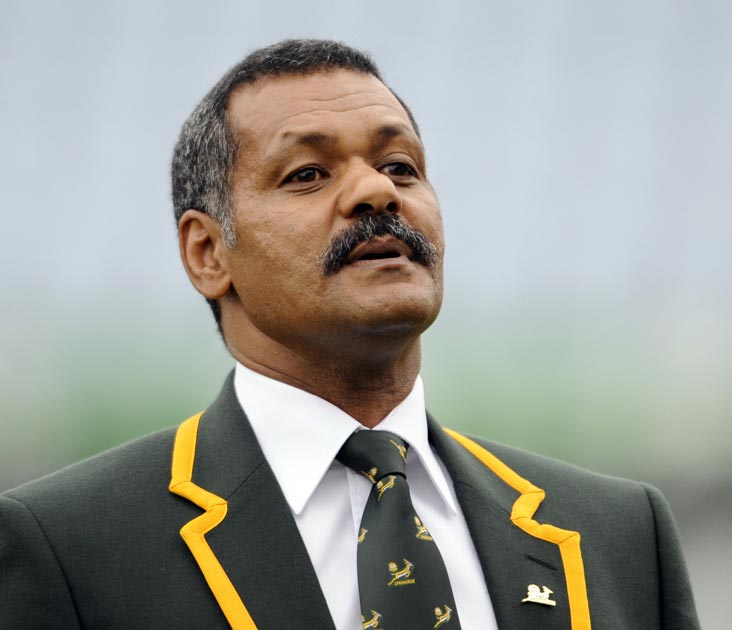Peter Bills: De Villiers the enigma

Your support helps us to tell the story
From reproductive rights to climate change to Big Tech, The Independent is on the ground when the story is developing. Whether it's investigating the financials of Elon Musk's pro-Trump PAC or producing our latest documentary, 'The A Word', which shines a light on the American women fighting for reproductive rights, we know how important it is to parse out the facts from the messaging.
At such a critical moment in US history, we need reporters on the ground. Your donation allows us to keep sending journalists to speak to both sides of the story.
The Independent is trusted by Americans across the entire political spectrum. And unlike many other quality news outlets, we choose not to lock Americans out of our reporting and analysis with paywalls. We believe quality journalism should be available to everyone, paid for by those who can afford it.
Your support makes all the difference.If Winston Churchill defined Russia as a riddle, wrapped in a mystery inside an enigma, what are we to make of South Africa's volatile rugby coach, Peter de Villiers?
The man elected controversially two years ago to guide the Springboks in succession to World Cup winner Jake White continues to puzzle and perplex in equal measure.
De Villiers inherited a golden dynasty and, shrewd operator that he is, quickly understood its value. He made few changes, to the chagrin of those in his homeland who saw the first black coach of the Springboks as the man to detonate traditional white influence within that exclusive club.
Alas, the reality has been somewhat different. De Villiers, aware of the lethal changing of moods and demands at home, has done what most men would in his position: focus on winning. He probably reasoned, and justifiably so, that if he were successful, the hunting parties who regularly go out seeking the head of Springbok coaches, would have no real target.
However, little is what it seems in South Africa. Winning is not enough in the eyes of the new ruling generation. Turning the Springboks into a team open to players from all backgrounds no matter what the colour of their skin has been a much slower process than most envisaged when de Villiers was appointed.
True, the Springboks have been graced by the presence of Bryan Habana, JP Pietersen, Adi Jacobs and prop Tendai Mtawarira. But four players in a team of 15 is not enough for the impatient reformers back home. De Villiers has been a crushing disappointment, in their eyes.
He isn't exactly the media's favourite man, either. De Villiers' frequent attempts to ridicule the views and opinions of the media go down poorly. He makes enemies with disturbing ease. That, of course, he would say is of no concern whatever to him; he has a job to do and gets on with it to the best of his abilities. Worrying about what the media think or do is not his concern.
In one sense, he is right. But in another, he's playing a dangerous game. South Africa's rugby bosses, like those of every other nation, do not enjoy seeing their national coach involved in frequent and very public spats. It hardly dignifies the office he holds. More coaching, less talking might be a valuable mantra for de Villiers to follow.
His public utterances attract regular ridicule. Some of the allusions to biblical stories which he came out with during last year's Tri-Nations series were bizarre. But then, you never know what is in the man's mind. I stepped out of a lift in Perth, Western Australia, last year to find him standing there. He issued his stock phrase “Even the bad days are good.” It induced gawping expressions all round among those standing close enough to hear.
In reality, de Villiers has tinkered very little with Jake White's team. Only where he has been forced to make changes, such as at fly half where Butch James was no longer available, has he altered things. And in that case, he was wrong, insisting Ruan Pienaar would be South Africa's long term No. 10, when it seemed obvious to most of us it would be Morne Steyn.
Slowly, de Villiers came round to our way of thinking.
He has clearly benefitted from the strong influence of his two assistants, Dick Muir and Gary Gold. Both men are sound practitioners of the game, understand it intrinsically and have certainly aided de Villiers.
Yet the Springbok coach, a colourful, controversial figure, still remains very much his own man; difficult to predict, at times unstable and prone to public statements better left unsaid. But he's still in the job, which some critics thought would not be the case by now, which confirms another trait. He is a survivor.
Join our commenting forum
Join thought-provoking conversations, follow other Independent readers and see their replies
Comments